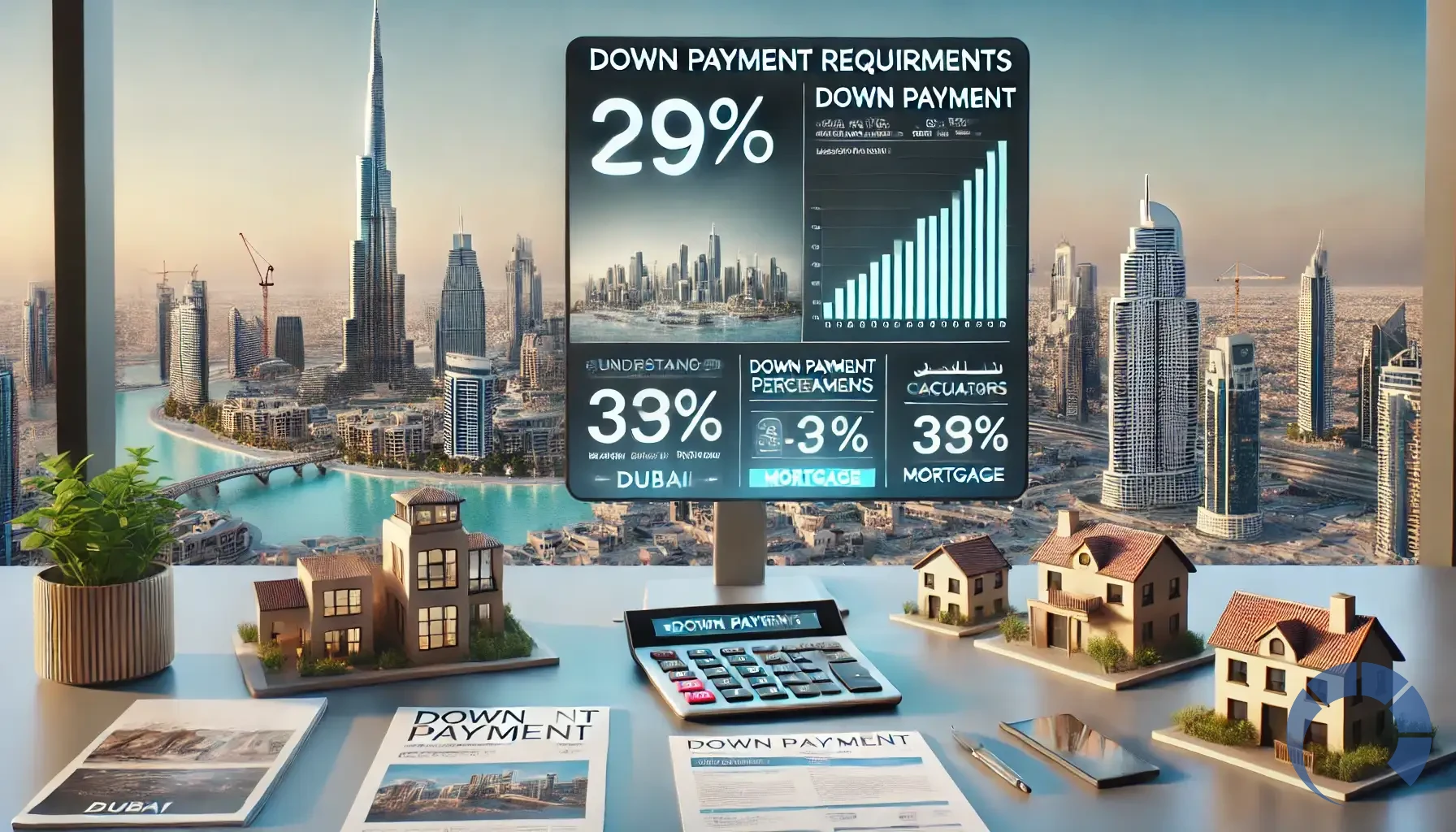
Understanding Down Payment Requirements for Buying a Home in Dubai
Dubai’s real estate market is a global hotspot, attracting investors and homebuyers from around the world. Whether you’re a first-time buyer or a seasoned investor, understanding the financial requirements for purchasing a property in Dubai is crucial. One of the most important aspects to consider is the down payment, which varies based on factors such as your residency status, the property’s value, and whether it’s an off-plan or ready property.
In this guide, we’ll break down the typical down payment requirements for buying a home in Dubai, highlight additional costs to consider, and provide tips to help you navigate the process smoothly.
Down Payment Requirements in Dubai: An Overview
The down payment for purchasing a property in Dubai is influenced by several factors, including the buyer’s residency status (UAE national or expatriate), the property’s value, and whether it’s a first-time purchase or a subsequent investment. Here’s a detailed breakdown:
1. For First-Time Buyers
Properties Under AED 5 Million
- Expatriates: A minimum down payment of 20% of the property value is required.
- UAE Nationals: A lower down payment of 15% is applicable.
- Non-Residents: Non-residents are typically required to pay a higher down payment of 50%.
Properties Over AED 5 Million
- Expatriates: The down payment increases to 25% of the property value.
- UAE Nationals: The requirement is 20%.
2. For Second or Subsequent Property Purchases
- Expatriates: Typically face higher down payment requirements, around 30% of the property value.
- UAE Nationals: The requirement is usually 25%, regardless of the property’s value.
3. Off-Plan Properties
Down payments for off-plan properties are generally more flexible and lower compared to ready properties.
- The initial down payment often ranges from 10% to 20%, with additional payments structured over the construction period.
- Developers may offer attractive payment plans, making off-plan properties an appealing option for buyers.
Additional Costs to Consider
While the down payment is a significant upfront cost, buyers should also factor in additional expenses, including:
- Registration Fees: Typically 4% of the property value, paid to the Dubai Land Department (DLD).
- Mortgage Processing Fees: Usually 1% of the loan amount, charged by the bank.
- Valuation Fees: Banks may charge a fee to assess the property’s market value.
- Service Charges: Annual fees for maintenance and upkeep of the property, especially in apartment buildings or communities.
- Agency Fees: If you’re working with a real estate agent, they may charge a commission (usually 2% of the property value).
Important Considerations for Buyers
1. Bank Valuation vs. Market Value
Banks typically evaluate properties 10% to 15% lower than the market value or the developer’s selling price. This means you may need to cover the shortfall if the bank’s valuation is lower than the purchase price.
Example: If you’re purchasing a property for AED 2 million, but the bank values it at AED 1.8 million, you’ll need to pay the difference (AED 200,000) in addition to the down payment.
2. Loan-to-Value (LTV) Ratio
The LTV ratio determines how much a bank is willing to lend you. For example:
- If the LTV ratio is 80%, the bank will finance 80% of the property’s value, and you’ll need to pay the remaining 20% as a down payment.
3. Consult Your Lender or Developer
Down payment requirements and mortgage terms can vary based on individual circumstances and market conditions. It’s advisable to consult your chosen lender or developer for specific details.
Tips for Managing Down Payment and Additional Costs
- Plan Your Budget: Calculate the total upfront costs, including the down payment, registration fees, and other expenses, to ensure you’re financially prepared.
- Explore Payment Plans: For off-plan properties, developers often offer flexible payment plans that can ease the financial burden.
- Compare Lenders: Different banks offer varying mortgage terms and interest rates. Shop around to find the best deal.
- Work with a Real Estate Expert: Partnering with a reputable real estate agency can help you navigate the process and avoid potential pitfalls.
Why Invest in Dubai Real Estate?
Dubai’s property market offers unparalleled opportunities for investors and homebuyers. With its tax-free income, high rental yields, and world-class infrastructure, the city continues to attract global interest. Whether you’re looking for a luxurious villa, a modern apartment, or an off-plan property, Dubai has something for everyone.
PHOREE Real Estate: Your Trusted Partner in Dubai Real Estate
For those looking to invest in Dubai’s real estate market, PHOREE Real Estate is your trusted partner. With 40 years of American wealth management expertise, AI-driven insights, and a commitment to client success, PHOREE offers unparalleled guidance and results. Whether you’re a first-time buyer or a seasoned investor, our team of experts will help you navigate the complexities of Dubai’s property market and maximize your returns.
To start your investment journey today, contact us:
- Visit: www.phoree.ae
- Hotline: +971 54 990 8590
- Email: Info@PHOREE.AE
- Chat on WhatsApp: +971 54 990 8590
Related posts:
Discover PHOREE Real Estate, led by Munawar Abadullah with 30 years of American Wall Street expertise, and learn how our AI-driven insights empower smart investments in Dubai's hotel and real estate markets. PHOREE Real Estate, Munawar Abadullah, hotel investment, Dubai...
Discover the consequences for developers in Dubai who fail to meet handover dates and learn the legal actions buyers can take. This comprehensive guide covers penalties, compensation claims, regulatory intervention, and the steps to take before filing a legal complaint....

